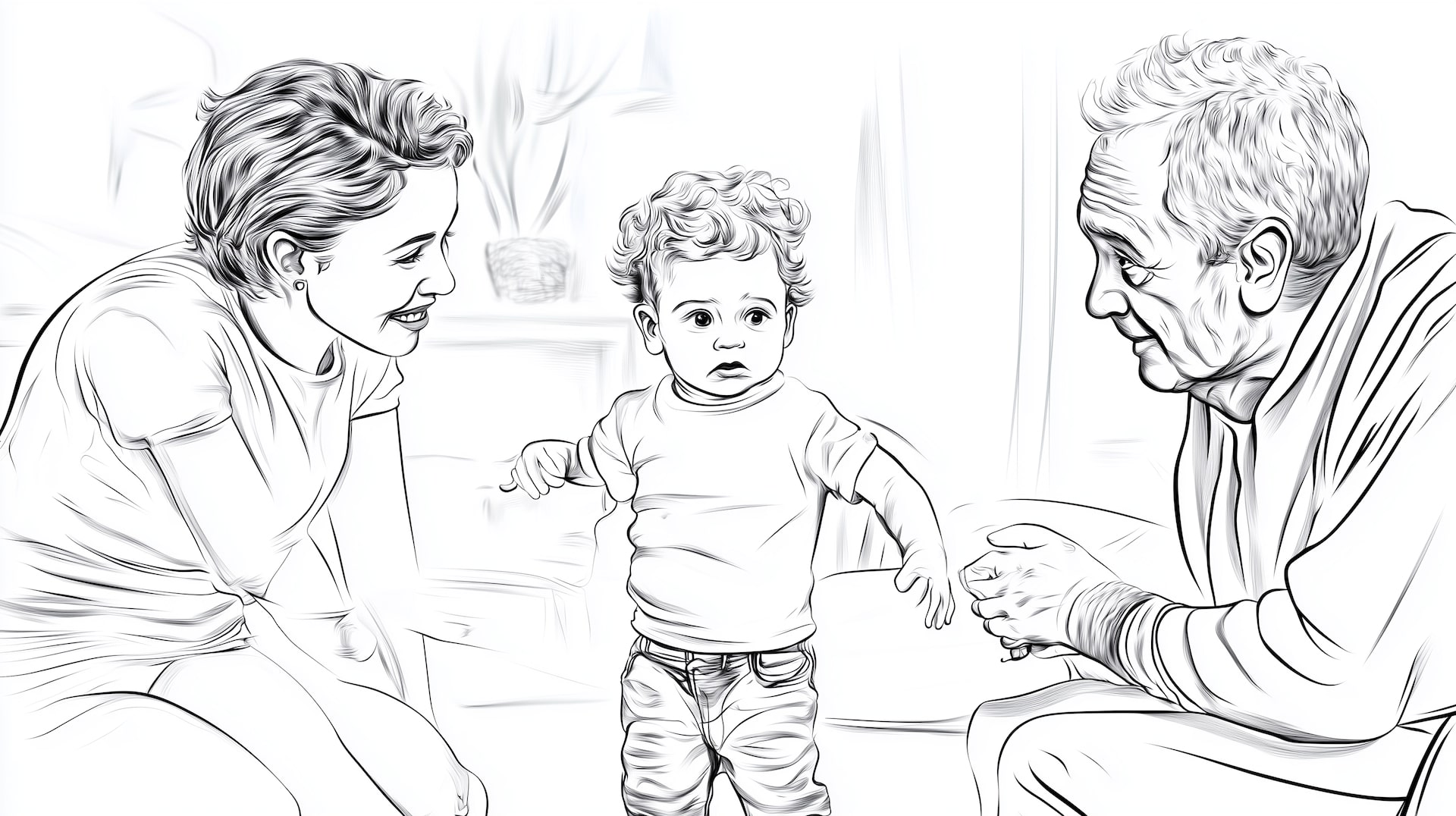How to Respond When Grandparents Say, "You're Too Soft!"

It usually comes out in the middle of something small: your toddler refuses to eat the peas, you gently guide them away from a tantrum, or you explain instead of punish—and then it drops: “You’re too soft.”
Whether it’s said with a smile, a sigh, or a full-on eye-roll, those words can sting. Especially when they come from your own parents or in-laws—the people who helped raise you. But don’t worry, you’re not alone. This is one of the most common parenting clashes between generations.
In this article, we’ll explore where this comment comes from, what it might really mean, and how to respond in ways that protect your confidence, your child, and your relationships.
What This Article Will Help You Do
- Understand the root of generational parenting differences
- Stay calm and confident in your choices
- Respond without escalating tension
- Protect your child from mixed messages
1. What “You’re Too Soft” Usually Means
This phrase rarely comes from malice. Most of the time, it reflects a clash between parenting eras. Many grandparents raised children in a time when obedience, punishment, and “tough love” were emphasized. Seeing today’s gentler, more collaborative approaches can feel foreign—or even threatening.
Translation: “You’re doing things differently than I did, and I’m not sure that’s okay.”
Sometimes, it’s also about fear. Grandparents may worry your child will grow up “spoiled” or “undisciplined.” It’s worth remembering: they love your child too. They just show it through a different lens.
2. Ground Yourself in Your Parenting Values
Before you respond, remind yourself: gentle doesn’t mean permissive. Your approach is likely built on brain science, respect, and long-term thinking—not fear of disobedience. And that matters.
Ask yourself:
- What values guide how I parent—connection, respect, calm limits?
- What kind of adult do I want my child to become?
- Is this approach working for my child and our family dynamic?
Being clear on your “why” helps you stand firm—without getting defensive.
3. How to Respond in the Moment (Without Losing Your Cool)
When someone questions your parenting, your body might go into defense mode. But your goal isn’t to win an argument—it’s to hold your boundary with calm confidence.
Try one of these responses:
- Validate + redirect: “I know it’s different from how you did things, but we’ve found this really helps [child’s name] learn to calm down.”
- Lighten it: “Yep, I’m going for ‘soft but steady’—seems to be working so far!”
- Set a boundary: “I hear that you’d do it differently, but we’re sticking with what we know works for us.”
- Invite curiosity: “It’s such a shift, isn’t it? A lot of new research has changed how we understand childrens’ brains and emotions.”
Tip: Practice these phrases ahead of time so you’re not caught off guard.
4. Address It Later (If You Want To)
Sometimes, a calm follow-up conversation outside the heat of the moment helps. Choose a quiet time when no one is emotional.
You might say:
- “I really value your input, and I know we’re doing things differently. Can I share a bit about why we’re taking this approach?”
- “We’re trying to raise [child’s name] in a way that builds emotional intelligence. I know it might look ‘soft,’ but we’re actually working really hard to set consistent boundaries with kindness.”
They might not fully agree—but respectful conversations often open the door to more mutual understanding.
5. Shield Your Child from Grown-Up Tensions
Even well-meaning grandparents can sometimes undermine your parenting in front of your child: “She’s crying again? You need to toughen her up,” or “He needs a proper smack!”
This matters. Mixed messages can confuse children and undercut your authority.
What you can do:
- Step in calmly: “Thanks, but I’ve got this.”
- Take the child out of earshot and reset if needed.
- Later, talk to the grandparent: “I’d really appreciate it if we could avoid commenting on our parenting in front of [child’s name]. It makes things harder for them.”
6. When to Let It Go (And When Not To)
Some comments don’t need a response. If your child is safe and it’s not a pattern, it’s okay to smile, nod, and move on.
But if it becomes frequent, undermines your parenting, or upsets your child, it’s worth addressing—either with a calm conversation or by setting clearer boundaries around visits or involvement.
Summary: How to Handle “You’re Too Soft”
- It’s usually about generational differences—not personal failure
- Know your parenting values and trust your instincts
- Respond with calm, confident boundaries
- Shield your child from mixed messages
- Pick your battles—and protect your peace
You’re Not “Too Soft”—You’re Being Intentional
There’s strength in calm. There’s wisdom in gentleness. And there’s nothing soft about showing up every day with empathy, consistency, and love.
So the next time someone says, “You’re too soft,” you can smile, stand tall, and know: you’re parenting with purpose.
Want more support for parenting with confidence—without guilt or confusion? Sign up for our weekly tips to stay grounded and inspired.
